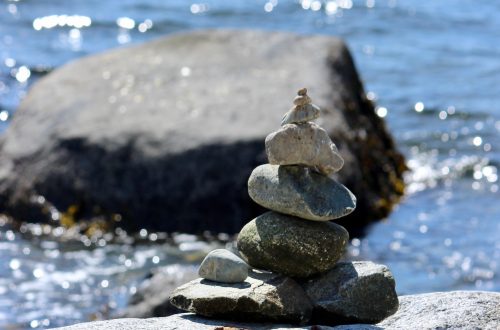A perspective on health and healthcare
I read this blog of Hanaâ Benjeddi. An inspiring and important message of a medical student!
Healthcare is at crisis. Costs are exploding and rates of burnout among physicians and medical students are disturbingly high. How can we expect ourselves to really heal people, when our system itself is broken? And what will happen if we shift our mindsets and change the way we think about health?
One cold winter morning, I was working as an assistant in a cardiologist practice and doing our morning arrangements, when a man entered that had the biggest smile on his face. There was just something about him that immediately drew my attention. As if he simply lit up the room with his entire being when he walked in. He looked so genuinely happy that it made me wonder why. Later, he appeared to be one of the patients that I had to take blood from. I invited him to a separate room and started talking to him. “How’s your day sir?” I asked with curiosity. “Can’t be any better!” he answered. As a distraction from the needle I generally ask patients about their work or their day, but this man really made me wonder what his story was. “Why?” I asked, and then he answered. “I lost my entire family in the war. My brothers, my sisters, my parents, they all passed away. I am the only survivor.” I looked at him with eyes of amazement and just let the silence invite him to tell more. “I grew older and I found the love of my life. I married her. We got children, and they got children. So I am a grandfather now, a very proud one. And every Friday evening we sit together with the entire family – all children and grandchildren – and we talk about the week and how we experienced it. We share stories, we listen to each other, we laugh together, we share great food. The fact that I can lose my entire family and gain an entire family is a miracle to me. That’s why I am happy.” I was speechless. What a story, I thought. He showed me what true reference for life is. Just the fact that you have a life to live and that it is given – is a fact to be in a state of happiness by default. He showed me the health of living in rapture and what it means to live a life in gratefulness and to let your life be an example to others, simply by being. This man probably doesn’t realize what kind of impact he had and how great the lesson is that he taught me that day.
Albert Schweitzer – physician, musician, philosopher, and Nobel Peace prize winner talked about Reference for Life: “It says that the only thing we are really sure of is that we live and want to go on living. This is something that we share with everything else that lives, from elephants to blades of grass—and, of course, every human being. So we are brothers and sisters to all living things, and owe to all of them the same care and respect, that we wish for ourselves.” It is what this man on that cold winter morning showed me. A thrivability that radiated off his face.
Life has always fascinated me. It thrives, it always finds an opportunity to continue despite the surroundings and despite barriers. I have met people with physical limitations that have more vitality than some people who are physically in perfect ‘health’. It comes from appreciating the capabilities that you do have and making the best out of it that awakens that vitality. Health is so much more than the absence of disease. Health is the capacity to make the best of what you have, and cultivate the capacity to rise above negative experiences or impairments.
Listening to stories and knowing what forms people throughout their lives is a gift for healthcare workers. We come so close to people and they show us themselves in their most vulnerable states. Not only is it a gift, it helps us to help them even better. It shows us their humanity and reflects in them our own humanity. How would it be if we remembered more what it means to be human, what life is really about, what it is that strengthens life, and encourages life to thrive on. We overlook what is left when there is no medication left to cure, no treatment left, but just us and the humanity that we can share and offer to patients.
I entered medical school with a great wish to heal people, equip myself with skills and knowledge in order to make this world a better place with the work that I would do. I give my best efforts at studying and pursuing my dream to become the best doctor that I can be. And yet, my workplace to be seems to be clouded by a crisis of healthcare. My future job has high rates of burnouts and doctors suffer from detachment and exhaustion if I’d have to believe research and journalists. Slowly, I am starting to see the reality of a system that isn’t capable of serving its purpose anymore, especially with a growing burden of diseases and a system that simply isn’t sustainable.
When students enter medical school, they are often asked what the reason is that they want to study medicine. I remember vividly how we were sitting in a group of around fifteen students, and every student told his story about what motivated him. People wanted to heal others, they wanted to help others, what else could there ever be as a reason for becoming a doctor? I was happy to be in an environment with people that were thinking the same as I did. And very satisfied, that this was the generation of doctors that I would be around for the next couple of years. If we, generally, start with that set of intentions, how could the system turn out the way it is now?
How did we end up in an environment where patients don’t have the feeling that they are really being helped or listened to? What created the crisis that we are in? And how do we create a healthcare environment that is truly sustainable?
We are healthcare. Healthcare is not something outside of us, that we can point towards and give tasks and assignments for change. We are healthcare: we are the doctors, we are the nurses, we are the policy makers, we are the patients, and we are part of the society that feeds and forms the health of the people. What is it in how we are, act and organize ourselves that can really help serve the health of people?
Throughout my studies, projects and research it became clear to me that personal leadership is the first step in change. Intrinsic motivation and self organisation are the keys to sustainability and authentic organizations. And this is exactly what healthcare needs. It is not so much what we are doing, but it is about the place where we come from when we think of solutions for our (global) healthcare challenges. A different mindset. It was Einstein that said that a problem cannot be solved with the same mindset that created it in the first place.
I once tried to picture my most ideal doctor – from mindset to habits, and I made a list of things that I felt were lacking in my own medical education compared to that perfect image. They can be grouped into four categories. The first category is the part where the doctor sees society and his role in society. I believe that we have an important role in our communities as future physicians. Patients come to doctors because they are sick, and when you see that illness is largely a consequence of the patient’s environment and lifestyle, you see that some awareness of society is a must. It is therefore important to be aware of the world that we live in, and the dynamics that shape our societies. “The social determinants of health are the conditions in which people are born, grow, live, work and age, including the health system.”
Another reason for knowing society and the world around you is for getting to know what your passion and mission in this world is. Awareness of purpose can give strength and clarity, especially when times get hard and full of stress. As the workload of physicians only increases across the globe, having knowledge of your deeper motives for being or becoming a doctor builds strength to keep on practicing medicine. Why did you start studying medicine? What is your intention as a doctor in the field? Why do you do the work that you do?
A third element of the mindset that is currently indispensable in medicine, is a holistic view of the patient. When you step out of medicine, and look at the simple concept of ‘healing’, you discover that it has much more to it than just the body. Our minds influence our bodies, consciously and subconsciously. And our body has its ways of influencing our mind. We practice sports, do arts, and still we leave out concept of the mind and body that can influence each other. Being aware of the fact that mind influences the body and vice versa, gives doctors a broader perspective to heal their patients and offer help in a different way. What we consume, affects our organs and our entire body. The surroundings we are in and what we are exposed to affect us too. Everything is interlinked and has an effect on one-another. This requires system thinking and seeing the interconnectedness when zooming out.
Fourthly, it would be great if medical education would focus more on leadership development. The sense of proactivity, the power of deciding to do something, knowing how to change systems by starting with changing yourself, knowing how to set up projects, to empower your (medical) team, to empower yourself, to do what is right regardless of personal interests – these are skills and qualities that I believe can heal the medical system and create, or rather remind us of, doctors that are the promotors of a health society. Good leadership skills combined with the right values and intentions can move mountains beyond our imagination.
We have so many beautiful ideas about change in healthcare. But what are the ideas worth if they don’t change us? What are they worth if we don’t implement what we know, in our lives, there where it is the closest to us? We need to start embodying what we want to see in healthcare and really be the change. Integrity and sincerity are such great tools that we have, meanwhile we are looking for complex solutions outside of ourselves. Yes, complex problems perhaps need complex solutions, but only will it be sustainable if it comes from a place where our words fit our actions. This the essential step in healthcare that takes us from collecting information to genuine transformation. That step is being the change.
If we change our mindsets – it could mean the difference between an unsustainable system that is sick and tries to heal people, and a healthcare system that puts humanity at the center of its practice and is truly sustainable. Like that man taught me on that cold winter morning, life and health is there to be celebrated and cultivated.
Hanaâ


